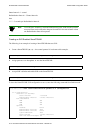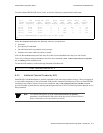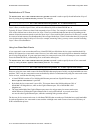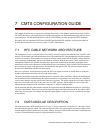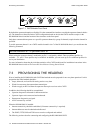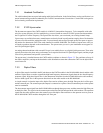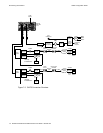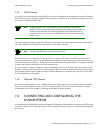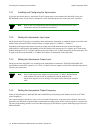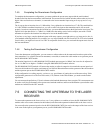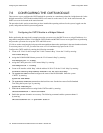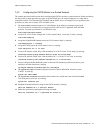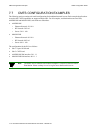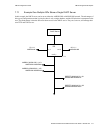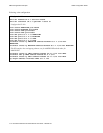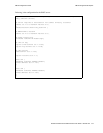
7-6 Riverstone Networks RS Switch Router User Guide Release 8.0
Connecting and Configuring the Downstream CMTS Configuration Guide
7.4.1 Installing and Configuring the Upconverter
If you have not already done so, unpack the IF-to-RF upconverter at your headend site and install it near your
RS 8000/8600 router. If your router is installed in a rack, install the upconverter in the same rack, if possible.
Note
Refer to the user documentation that accompanied your upconverter for safety
information and specific installation instructions.
7.4.2 Setting the Upconverter Input Level
Set the upconverter IF input level, according to the manufacturer's instructions, to match the output level of the cable
modem cards. Riverstone CMTS modules feature on output rating of +30 dBmV (+/-2 dBmV).
Depending on the upconverter model selected you might need to add attenuation to the upconverter input to
compensate for cable length in the headend, and for the design of the upconverter. For example, the IF input to the
General Instrument C6U is +23 dBmV and this upconverter requires 6 to 19 dB of attenuation on the input cable. The
IF input to the Wavecom MA4040 is +33 dBmV and requires no attenuation on the input cable.
7.4.3 Setting the Upconverter Output Level
Set the upconverter output RF level, according to the manufacturer's instructions. DOCSIS and EuroDOCSIS
specifications permit an RF output level of +50 to +61 dBmV. Select an output level that falls within this range that is
valid for your upconverter.
Note
Never set the upconverter output level greater than +61 dBmV. DOCSIS-based
cable modems will not be able to communicate with the headend if the
upconverter output level is set too high. The signal will be distorted in overdrive
state.
7.4.4 Setting the Upconverter Output Frequency
Select an output frequency. Both DOCSIS and EuroDOCSIS specifications permit channels from 91 to 857 MHz
(center frequency).
Your output frequency should be in your narrowcast band of frequencies, or the narrowcast combiner. Narrowcast
frequencies are defined as frequencies that are transmitted to certain groups of fiber nodes or regions in your network.
The same programming content is received within each group of fiber nodes or regions. Different groups will receive
different content.



